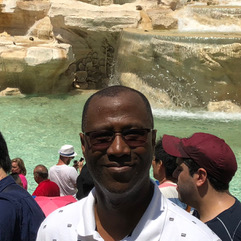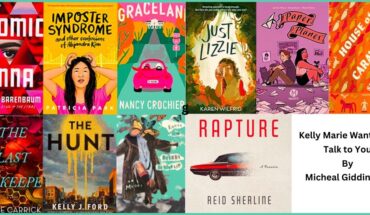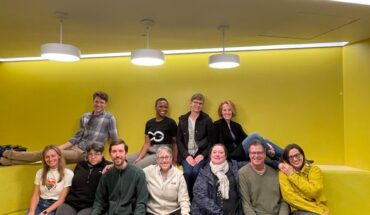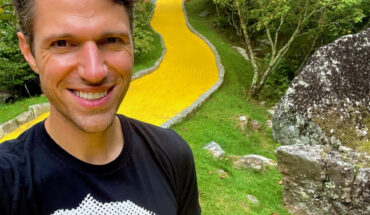Next Chapters is a biweekly feature spotlighting graduates of GrubStreet’s Novel Incubator program, which has been running since 2010.
Novel Incubator Year: 9
Current Project: The Last Slave Brother, the first of two historical novels set 30 years after Christ’s death

Photo credit: Theresa Dryden
What writers have most influenced your writing?
I’ve always loved historical fiction. Amor Towles’ A Gentleman in Moscow taught me historical fiction can be wide-ranging and smart. George Saunders’ Lincoln in the Bardo showcased the genre’s unbridled, fantastic side. Listening to the audiobook conclusion of local author Crystal King’s Feast of Sorrow left me devastated, sitting in my driveway for a full five minutes. Until that point, I’d never realized a story could reach in, grab my heart, and crush it.
What’s the origin story of your incubator novel?
The Last Slave Brother tells the story of Onesimus, a non-believing slave who has to defend why he stole from and escaped his Judeo-Christian master, Philemon, and traveled a thousand miles to Rome to live with Christian apostles Paul and Luke. I heard a sermon on the New Testament letter to Philemon and started Googling more information. Five years later, to get into the heads of my characters, I’ve consulted 200 books for research; traveled to Turkey, Greece, and Rome; and cooked and eaten snails, Lucanian sausage, and Parthian chicken.
Are you currently part of a writers’ group? If so, tell us about that.
My writing group meets at Jitters Café in Melrose on Saturdays. Though we have no official name, we sometimes call ourselves “Jitterbugs” or “Jitterbabies.” The six of us formed a group after connecting at Grubstreet’s The Muse and The Marketplace conference several years ago. Now, we’ve expanded our reach by teaching classes and teaming up with Follow Your Art Community Studios, also in Melrose. Both groups have helped me tremendously with accountability, motivation, and opportunities for readings and literary fellowships. My (formerly crushed) heart is full.
What is your work when you’re not writing?
I’m a systems engineer for an industrial printer company, a futurist, and an inventor. Though I love my day job and find the work challenging and satisfying, writing is in many respects the most difficult challenge I’ve ever attempted. Whereas engineering is often systematic and focused, the next sentence, paragraph, chapter I write can seem entirely open-ended. With spreadsheets (spreadsheets!) I plot each novel. My next book series is climate fiction (CliFi) set 100 years in the future. I expect the series to mash up the left and right halves of my brain. That will either be wildly successful…or cause an Atomic Anna-level brain meltdown!
What was the last darling you killed?
I’d taken the easy way out and given my slave protagonist a love interest, a woman named Ophelia, whose mother was a rabbi’s daughter. Over the 30 years the two books followed the protagonist and Ophelia, they married, had children, and welcomed a trans godparent into their home. But after writing over a dozen chapters focused on Ophelia and her mother, I decided they were misguided distractions to my hero’s journey—so I killed them off. You have no idea how many witticisms I now have to recreate!
Any advice for other historical fiction authors?
Don’t be afraid to contact other authors for help, even if you feel you’re not in their league. As much of my story takes place in ancient Rome, I’ve long admired Dame Mary Beard, a University of Cambridge classics professor who has authored 20 books and dozens of articles. I kept finding articles she’d written for Smithsonian Magazine detailing where specific types of shops were located. I hadn’t found such detailed maps. One November at 4:55 a.m., I mustered the courage to email and ask for her sources. At 5:05 a.m., I received her response: Carandini’s Atlas of Ancient Rome. I recently shared that with another HistFic novelist who had the same problem. In the global community of writers, you’re never alone.
Cameron Dryden is a writer, engineer, and inventor with 31 patents. He received an award in the 2018 Writer’s Digest 88th National Annual Writing Competition and has written contemporary parables that he’s shared as a lay preacher with children and adults. Inspired by true events, his debut novel tells the story of an escaped first-century slave who must decide which is more important: his freedom or his faith. Find out more about Cam and his work at www.origenes.org or on Twitter, Instagram, or Facebook.




1 comment